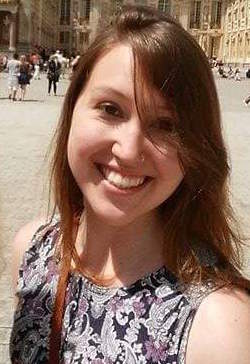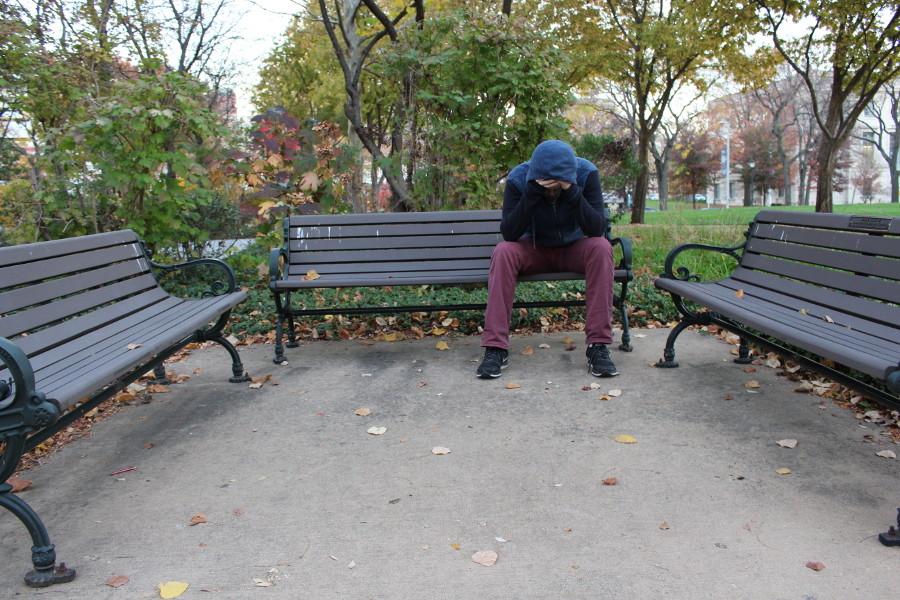Suicide prevention grant shines light on campus mental health
One of the aspects of CWRU’s mental health resources under consideration is how spread out its resources are, as they are scattered across campus.
With Mental Health Awareness Week drawing to a close, the question of how members of the Case Western Reserve University community can continue the conversation comes to the forefront. Thanks to a $300,000 grant from the Substance Abuse and Mental Health Services Administration (SAMHSA), CWRU is in the process of answering this question.
Over the summer, CWRU was named one of 20 recipients of the Garret Lee Smith 2015 Campus Suicide Prevention Grant. For the next three years the grant will contribute to building a foundation for suicide prevention programs and increasing mental health education, especially in regard to suicide, on campus.
There are limits to what the grant can be used for, though.
“You couldn’t use the money for direct clinical care,” said Sara Lee, a staff physician at UHS and an assistant professor of Pediatrics at CWRU School of Medicine. “You couldn’t use the money for, say, we really need more therapists.”
According to Eleanor Davidson, clinical director of health at University Health Service (UHS), and Lee, the grant will first be used to join the Jed and Clinton Foundation Health Matters Campus Program.
“You become a member of this program and then they help you, first of all, assess what you do have on campus that’s working,” said Davidson. “They have a 360 view of the whole campus and campuses across the country.”
As their first step, Davidson and Lee will establish an “interdisciplinary, campus wide oversight team” which will work to determine what changes need to be made.
Lee says that this team will meet with groups from all over campus—consisting of university employees and students—in order to determine what areas of university mental health programs are lacking. These groups include the LGBT Center, the Flora Stone Mather Center for Women, the Faculty Senate and the Undergraduate Student Government.
Participation in the Campus Program will also allow Davidson and Lee to examine the suicide prevention structures of other universities in the program, see what works, then integrate their findings into their ideas for CWRU.
In addition to the Campus Program, Davidson and Lee plan to improve student access to crisis lines and to train community members to identify students in crisis and let them know where and how they can receive help.
These last two plans speak directly to student concerns.
Maia Delegal, founder and president of CWRU’s chapter of the National Alliance on Mental Illness (NAMI), hopes that the SAMHSA grant will create a suicide hotline for which students can be trained to answer calls. NAMI itself focuses on educating CWRU students about mental illness.
NAMI is not the only group that provides education on mental health. The SMARRT program includes a mental health component, Theta Chi Fraternity sponsors Mental Health Awareness Week and Active Minds is a group dedicated to promoting mental health awareness among college students.
With so many groups promoting education on campus, Delegal wonders how attendance at educational programming can be increased. “How do you do that without making it mandatory and without throwing money at the problem?” she asked.
While Delegal believes that CWRU students have a good basic understanding of mental health as well as good intentions, she notes that it’s hard for students to recognize the severity of the stress they see in their peers.
“What (students) see around campus is normal to them,” said Delegal. “Not getting sleep, only eating every other day.”
“No campus is immune to the experience of students having high expectations of themselves,” said Jes Sellers, clinical director of counseling at University Counseling Services (UCS). “The way we talk about expectations and the way people wear their stress as a badge of courage needs to change.”
How students react when a friend reaches out for help is arguably one of the biggest factors in the decision to seek professional resources such as counseling. In a 2011 survey by UCS of both CWRU undergraduate and graduate students, about 60 and 64 percent, respectively, sought help or support from a friend, peer or roommate during a stressful period.
“Sometimes it takes a caring friend to walk someone over here (UCS) or to the Health Service,” said Sellers. “Many of our students come in and they do check off that a friend told them to come here.”
Davidson believes that people’s experiences with friends or family with mental illness will motivate them to become more engaged with the mental health training CWRU plans to implement.
“When you live in a residential community you will know somebody who has struggled with anxiety or depression,” said Davidson. “I think it leaves students with questions and things that they feel they’d like to understand better. I think students want to be good friends … and know the limits of what they should do, how they should go about helping people.”
When listening to peers, Sellers says that students should take a more empathic approach. Being a good listener and truly listening, rather than comparing situations, are the best practices for students who are approached by others in need of someone to talk to.
UCS currently provides training to members of Residence Life and Greek Life on these issues, and Lee plans to use part of the grant money to implement positive mental health training with students in residence halls. Mental health first aid training sessions will be created for CWRU Emergency Medical Services, residence staff and other groups throughout the university.
The grant will also ensure clearer access points for students seeking help, as UHS and UCS will begin to merge their services.
“A student shouldn’t have to know where they would go to get a particular type of health,” said Davidson. “Our goal is to make sure for students that getting health is just seamless to them and they don’t have to know which entity to ask.”
Students can visit UCS’s “Emergency Information” page on case.edu for a list of emergency resources in the case of a mental health crisis.

Anastazia Vanisko is copy editor for The Observer and writes for the news section. She is a third-year political science and dance double major, with minors...


